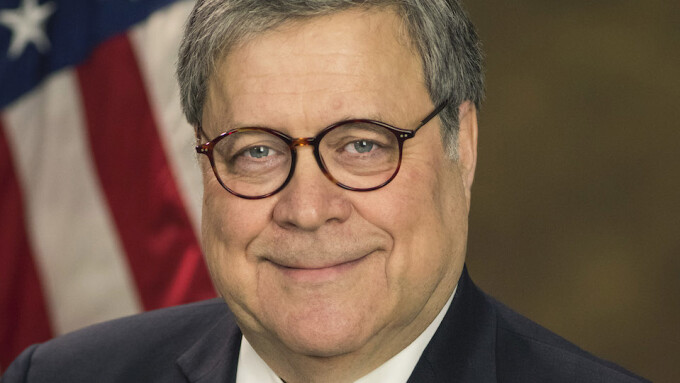WASHINGTON — An Assistant Attorney General at Willam Barr’s U.S. Department of Justice wrote a letter on Tuesday to the congressional committees currently reviewing projects to repeal or radically reform Section 230 — the so-called “First Amendment of the internet” — arguing that the legislation should be altered or else completely tossed in order to “start on fresh canvas.”
Assistant Attorney General Stephen Boyd wrote to the House and Senate's judiciary and commerce committees claiming Section 230 immunity allows platforms to act "in bad faith" or in a way that "demotes the speech of others based on political viewpoint.”
"That text provides immunity only for content removed 'in good faith' because it is 'obscene, lewd, lascivious, filthy, excessively violent, harassing, or otherwise objectionable' — not merely because the platform operators themselves dislike or disagree with it," the Trump-appointed Assistant AG wrote, acting on behalf of Barr’s entire DOJ.
The DOJ specifically referenced a current controversy over Facebook and Twitter’s handling of a New York Post article that deliberately disseminated damaging information from obscure provenance about a presidential candidate’s family member.
The DOJ also explicitly referred to the recent announcement by Federal Communications Chairman Ajit Pai that his agency would attempt to set up rules to curtail Section 230 protections, and to Supreme Court Justice Clarence Thomas' unusual statement attached to a concurrent opinion urging that the Supreme Court take up cases that would challenge jurisprudence about the legislation.
"As Justice Thomas noted, those decisions have 'emphasized non-textual arguments' in the service of expanding immunity 'beyond the natural reading of the text’,” the DOJ argued.
One Step Beyond
After endorsing Barr’s recent legislative reform proposal, the department went one step further and said that, rather than reform, a total repeal and rewrite would actually be a better path to "overrule erroneous precedent that has built up around Section 230 over the last 25 years."
"While the department's proposal amends the current statutory text,” Boyd wrote on behalf of the DOJ, “the time also may be ripe for Congress to start from a blank slate to account for the dramatic changes in this industry.”
Although Joe Biden has expressed a desire to reform or repeal Section 230, and some of the legislative reform proposals have bipartisan support, the current attack on Section 230 is a thoroughly partisan effort that escalated this summer when Twitter fact-checked a tweet by Donald Trump.
The next day, Trump issued an unprecedented executive order targeting the main online platforms, and he has continued regularly tweeting “REPEAL SECTION 230" to his base, to the confusion of the majority of people unfamiliar with the extremely complex issues of internet Law.
The language of bills introduced by Lindsey Graham, of statements by the FCC’s Ajit Pai and William Barr and by Justice Thomas’ opinion, all echo that of Trump’s executive order.






